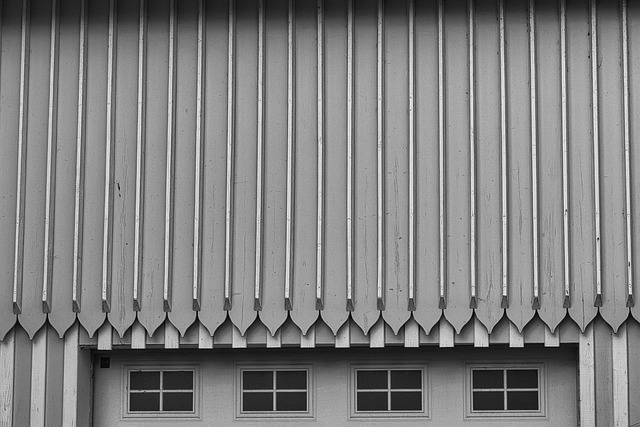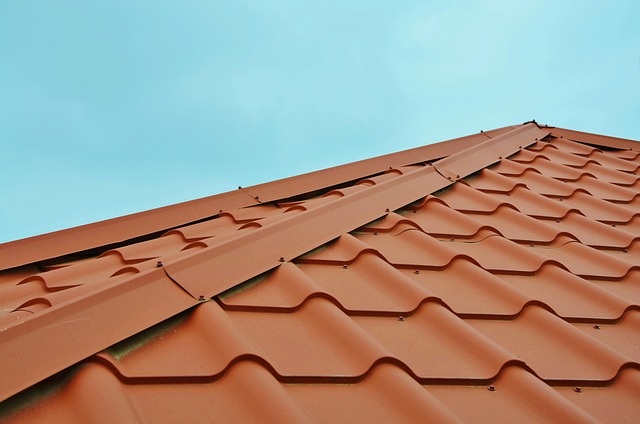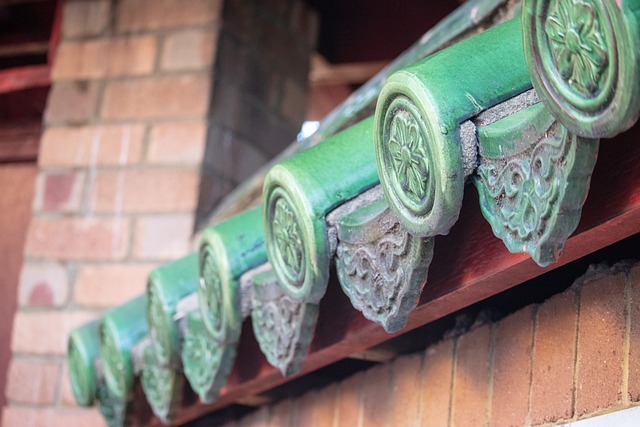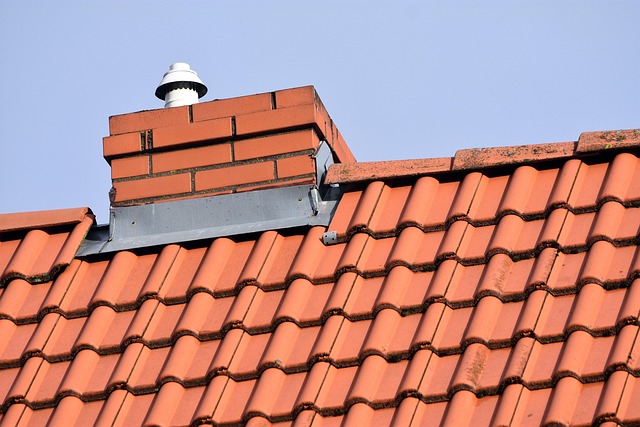Commercial roofing requires robust solutions due to its scale, weather exposure, and high traffic. Professional contractors offer tailored Commercial Roofing Solutions using advanced materials, techniques, and technologies to ensure structural integrity, energy efficiency, water protection, and local code compliance. Top-tier teams have expertise in various systems, proven experience, and certifications, offering long-lasting roofs with sustainable materials and modern innovations like drones for inspections and solar panels for reduced environmental impact. Case studies guide informed decisions, while regular maintenance extends roof life. Future trends include eco-friendly materials, smart roofing, and integrated solar panels.
In the dynamic landscape of commercial real estate, a roof is more than just shelter—it’s a protective barrier that ensures business continuity. Professional Commercial Roof Contractors play a pivotal role in maintaining these critical assets, addressing unique challenges like extreme weather and heavy traffic. This article explores comprehensive solutions, from understanding specialized needs to leveraging advanced technologies, ensuring your commercial roofing investments are secure, durable, and cost-effective. Discover the key qualifications to look for, sustainable practices, success stories, common pitfalls to avoid, and maintenance insights that drive peak performance.
Understanding Commercial Roofing: Unique Challenges and Considerations

Commercial roofing presents unique challenges that differ significantly from residential roofing. These structures often cover vast areas, demanding robust and durable materials to withstand heavy loads, extreme weather conditions, and high-traffic environments. The complexity increases with varied roof designs, including flat roofs, low-slope roofs, or steep-slope structures, each requiring tailored solutions.
Professional commercial roof contractors are equipped to navigate these challenges by offering specialized Commercial Roofing Solutions. They employ advanced technologies and techniques, ensuring the longevity and functionality of the roofing system. These experts consider factors like structural integrity, energy efficiency, water protection, and compliance with local building codes, providing a comprehensive approach to meet the specific needs of commercial properties.
The Role of Professional Contractors in Ensuring Longevity and Safety

Professional commercial roofing contractors play a pivotal role in ensuring the longevity and safety of business properties. Their expertise lies in providing robust commercial roofing solutions tailored to meet the unique needs of various structures, from office buildings to industrial facilities. By employing advanced techniques and high-quality materials, these professionals safeguard against potential hazards like leaks, structural damage, and extreme weather conditions.
Moreover, professional contractors offer invaluable peace of mind by adhering to stringent safety protocols throughout the roofing process. They possess the necessary equipment and training to navigate complex roofs securely, minimizing risks associated with heights and hazardous environments. Regular maintenance checks conducted by these experts also help identify potential issues early on, preventing small problems from escalating into costly repairs or even structural failures.
Key Qualifications and Expertise to Look for in Top-Tier Commercial Roofers

When selecting commercial roofing solutions, it’s paramount to vet contractors based on their key qualifications and expertise. Top-tier roofer teams should possess extensive knowledge of various roofing systems designed for commercial buildings, including flat roofs, metal roofing, and complex multi-layer membranes. This specialized understanding ensures they can tackle unique challenges presented by these structures.
Furthermore, look for contractors with proven experience in large-scale projects, demonstrating their ability to manage intricate installations and renovations efficiently. Certification from reputable industry bodies is another vital indicator of competence. These credentials assure clients that the contractor adheres to safety standards, uses high-quality materials, and provides excellent workmanship, ultimately safeguarding the longevity and integrity of the commercial roof.
Advanced Technologies Transforming the Commercial Roofing Industry

The commercial roofing industry is undergoing a significant transformation, largely driven by advancements in technology. Modern contractors now have access to innovative tools and materials that enhance efficiency, durability, and safety on job sites. For instance, drones equipped with high-resolution cameras enable thorough inspections of large-scale roofs from aerial perspectives, detecting even the subtlest defects or areas of wear and tear. This technology streamlines the assessment process, saving time and resources.
Moreover, advanced manufacturing processes have led to the development of lightweight roofing materials that offer superior insulation and energy efficiency. Solar panels integrated into roof systems are also gaining popularity, providing businesses with sustainable and cost-effective commercial roofing solutions. These technological trends not only contribute to environmentally friendly practices but also enable buildings to stand out with modern, aesthetically pleasing designs.
Sustainable and Energy-Efficient Roofing Solutions for Modern Businesses

In today’s business landscape, sustainability and energy efficiency are no longer optional but imperative. Commercial roofing solutions have evolved significantly to meet these demands, offering businesses a chance to reduce operational costs and their environmental footprint. Eco-friendly materials like recycled metal, plant-based composites, and high-performance insulation are transforming traditional roofs into efficient, sustainable systems. These innovations not only contribute to a greener planet but also provide long-term cost savings through reduced energy consumption and lower maintenance requirements.
Modern commercial roofing solutions are designed to enhance a building’s energy efficiency, often featuring advanced ventilation systems that regulate indoor temperatures, thereby decreasing the strain on HVAC systems. Additionally, reflective coatings and light-colored surfaces mimic natural habitats, significantly reducing the urban heat island effect. By adopting these sustainable practices, businesses can foster a positive image among eco-conscious customers while enjoying tangible benefits such as improved building performance and increased property value.
Case Studies: Successful Commercial Roofing Projects and Their Impact

Commercial roofing projects can significantly impact a business’s operational efficiency and building longevity, making case studies an invaluable resource for understanding successful outcomes. By examining real-world examples, potential clients can gauge the expertise and quality of various commercial roofing solutions. For instance, consider a recent project where a contractor replaced an outdated, leaking roof with a durable, energy-efficient system. This transformation not only resolved structural issues but also reduced energy costs for the building’s tenants, demonstrating both short-term and long-term benefits.
Additionally, case studies highlight innovative techniques and materials that contribute to robust commercial roofing. From advanced sealing technologies to sustainable, eco-friendly options, these projects showcase how modern contractors address unique challenges. As a result, businesses can make informed decisions when selecting roofing partners, ensuring their investments lead to increased property value, reduced downtime, and improved overall performance.
Common Mistakes to Avoid When Hiring Commercial Roofing Contractors

When hiring commercial roofing contractors, avoiding common mistakes is essential to ensure you receive top-quality commercial roofing solutions. One of the most significant blunders is overlooking the importance of licensing and insurance. Always verify that the contractor is properly licensed and insured to operate in your area, as this protects both your property and their work. Unlicensed or uninsured contractors may cut corners to reduce costs, leading to subpar workmanship and potential legal issues down the line.
Another mistake to avoid is hiring based solely on cost. While budget is a crucial factor, choosing the cheapest option could result in inferior materials, inexperienced labor, and future repairs. Look for a balance between price and expertise. Reputable contractors will provide transparent quotes, breaking down costs without hidden fees. Additionally, consider their reputation; ask for references or check online reviews to gauge customer satisfaction and the quality of their work.
Maintenance Tips for Optimal Commercial Roof Performance

Regular maintenance is key to ensuring your commercial roofing solutions remain in top condition and deliver optimal performance. Here are some essential tips for commercial roof contractors and building owners alike. Firstly, schedule routine inspections at least twice a year. This enables early detection of any potential issues such as leaks, damaged shingles or flashing, and mold growth. Prompt action on these problems can prevent minor repairs from turning into costly disasters.
During inspections, check for proper drainage systems to avoid water pooling, which can lead to structural damage over time. Also, inspect the roof’s sealants and caulking for any cracks or deterioration. These measures not only enhance the longevity of your commercial roof but also contribute to energy efficiency by maintaining optimal interior temperatures.
The Future of Commercial Roofing: Trends and Innovations to Watch

The future of commercial roofing is brimming with innovative trends and solutions that promise to transform the industry. One prominent trend is the increased adoption of sustainable and eco-friendly materials. With a growing awareness of environmental impact, contractors are now prioritizing roofs made from recycled or biodegradable substances, contributing to greener buildings and reduced carbon footprints. Additionally, advanced technology is playing a pivotal role, with smart roofing systems that can monitor their own performance, detect leaks early, and even predict maintenance needs.
Another notable innovation is the integration of solar panels into commercial roof designs, offering both energy efficiency and cost savings for businesses. As technology advances, we can expect to see more sophisticated roofing solutions tailored to specific building structures and climates, ensuring optimal durability and performance. These developments in commercial roofing not only enhance aesthetics but also contribute to longer-lasting, more sustainable built environments.
